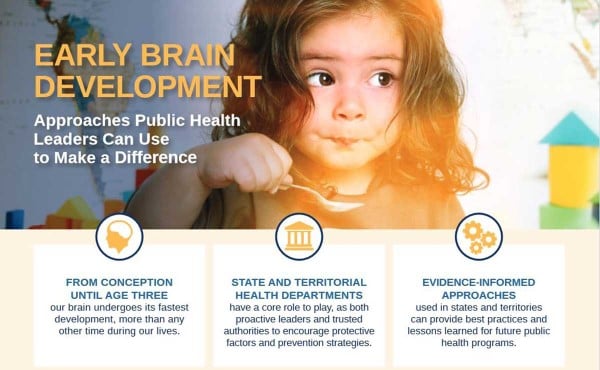Early exposure to adverse experiences and stressors, such as poverty, unstable home environments, violence, and a lack of access to quality early education, can negatively affect a child’s development and long-term health and well-being. These experiences, especially within the first three years of life, transform the architecture of the developing brain and have lifelong impacts on a child’s cognitive and emotional development.
Tested policy approaches, such as evidence-based home visiting and maternal depression screening, can buffer the effects of adverse experiences and help shape the social environments in which children grow up and build a strong foundation for their health and wellness. ASTHO’s Early Brain Development project identifies and shares evidence and strategies to help states and territories foster healthy early childhood brain development.
Featured

Early Brain Development Approaches for Public Health Leaders
This pair of infographics details strategies and examples of approaches that public health leaders can take to ensure healthy early brain development.

Breastfeeding for Healthy Early Brain Development
This brief discusses how home visiting programs provide breastfeeding support, foster healthy early brain development, and improve overall child health and well-being.
Latest Early Brain Development Resources


Improving Youth Behavioral Health Through School-Based Strategies
Learn More

Some Early Childhood Development Programs Stalled, Others Flourished During Pandemic
Learn More


Recent Federal Actions Spur Changes to Children's Blood Lead Level Screenings and Response
Learn More